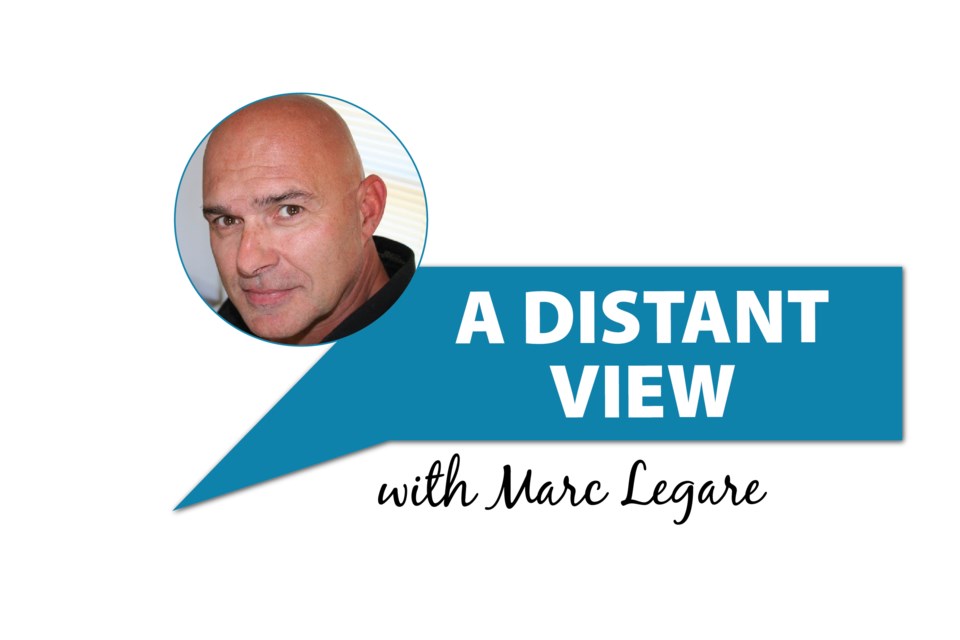Marc Legare is a philosopher and motorcycle adventurist.
He has travelled extensively, worked and lived in Australia, US, and across Canada.
He has a varied working career including: Firefighter, Lawyer, Navy, Motorcycle Importer, plus others.
He chose to return to southern Saskatchewan because of his family's deep roots here.
As a columnist, Legare's columns will offer food for thought.
The number of people who take mind altering drugs is staggering. The types of drugs are many; prescription medications for depression, anxiety, and the likes; the now legal marijuana, plus the lengthy laundry list of illegal drugs, too numerous to mention. Much effort is being expended to address the negative impact of their use including medical services, law enforcement, financial support, rehab centres and more. Tragically and typical however, the most critical question is not being asked, and that question is why?
The legion of scholars and medical professionals have covered the who, what, where, and when of drug use, but there is no examination of why. Why do so very many people in our prosperous, supposedly intellectually enlightened, equality oriented and technologically advanced society want and need those drugs?
There is a belief that much of the drug use in our society is a result of the hopeless circumstances of our disenfranchised members. That may be true in part, but that does not explain the countless millions of people who are not disenfranchised yet are taking both illegal and legally prescribed mind-altering substances. The amount of anti-depressant/anti-anxiety medication alone is distressing and their use crosses all social, economic and cultural boundaries.
When we hear news of drug wars and the pursuit of the latest billionaire drug lord kingpin let us be reminded of the ugly truth behind that news; if there was no demand for those drugs, there would be no drug wars and nobody would become a multi-billionaire by selling them. It is a stark light-of-day truth that in order for traffickers to become so incredibly wealthy, the demand for their product must be mind-boggling. That shines a not so blissful light on our society as a whole.
In asking why, we must postulate on the need to escape reality. Why such a need? Is our society that demoralizing? Do we have the courage to entertain that perhaps it is?
In asking why there is such persistent and extensive drug use, we must consider some root questions. Dare we propose that we are not living according to our nature? Dare we submit that we are not as moral a society as we think? Dare we say that our new world with all its so-called social issue advancements is making us more and more isolated from each other? Dare we proffer that our materialism is destroying us? Dare we propose that the now sneered at beliefs, traditions and culture of our forbearers was healthier than ours? Dare we propound that many of our modern values and things we now believe are just plain wrong? Dare we?
Far too much time, energy, and money is being spent on dealing with the day-to-day damage our modern drug-filled life is causing, and far too little time and genuine thought is put into questioning why we need those drugs in the first place. This is especially arrestive considering the backdrop of our society having so much wealth, luxuries and capabilities. After all, we live in the most socially and culturally enlightened society humankind has ever seen, don't we? Or not...
In asking "why" are so many people needing drugs to cope with our new-age life we may possibly get to the underlying reasons. Potentially we may conclude that the fundamental way we are living is not good for us. Who knows, with a little more reflection and correct philosophical enquiry and a little less superficial bandaging of our ever-bleeding wounds, we might get to the bottom of it. And that questioning might make us rethink who we are and what we value, or rather, what we ought to value.
Thoreau poetically wrote... "There are a thousand hacking at the branches of evil to one striking at the root."
The views and opinions expressed in this article are those of the author, and do not necessarily reflect the position of this publication.




